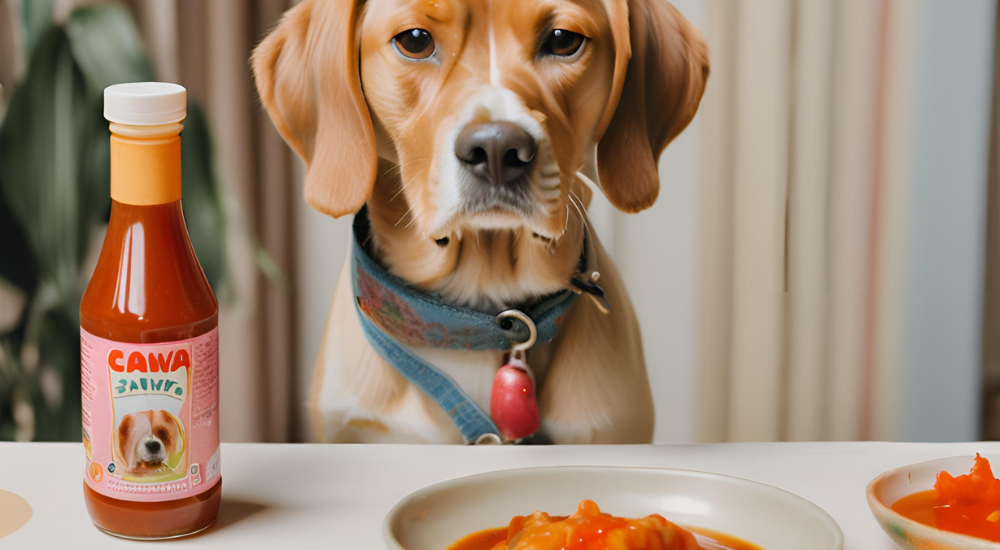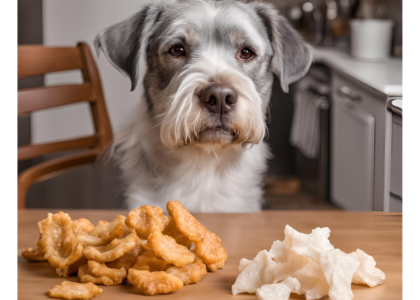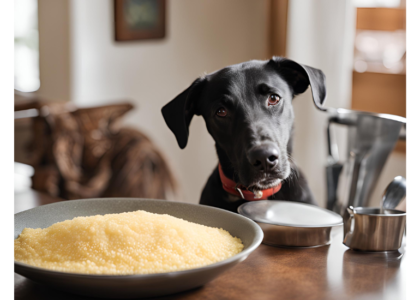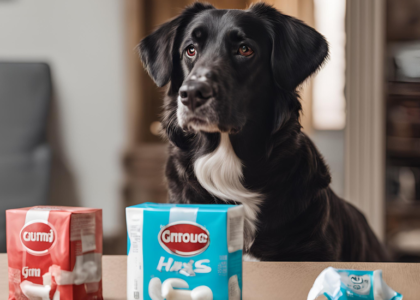Dogs should not have sweet and sour sauce. It contains ingredients harmful to dogs, like sugar, vinegar, and garlic.
Sweet and sour sauce might be a tasty treat for humans, but it poses several risks for dogs. Ingredients commonly found in this sauce, such as sugar, vinegar, and garlic, can be detrimental to a dog’s health. Sugar can lead to obesity and dental issues, while vinegar might cause stomach upset.
Garlic, even in small amounts, can be toxic to dogs, leading to gastrointestinal issues and, in severe cases, red blood cell damage. Pet owners should always prioritize their pet’s health by avoiding giving them human foods that contain harmful ingredients. Opt for dog-safe treats instead to ensure your furry friend stays healthy and happy.
Understanding Dogs’ Taste Buds
As a responsible dog owner, you might wonder if your furry friend can enjoy the same foods you do. One such question is whether dogs can have sweet and sour sauce. To answer this, it’s crucial to understand dogs’ taste buds and how they differ from humans’. This knowledge will help you make better dietary choices for your dog.
Dogs’ Taste Sensitivity
Dogs have a different taste sensitivity than humans. While humans have about 9,000 taste buds, dogs only have around 1,700. This means dogs experience flavors differently. Their taste buds are more attuned to certain types of tastes.
Here are some key points about dogs’ taste sensitivity:
- Sensitivity to Meat: Dogs have taste buds specifically for detecting meat. They are naturally drawn to meat flavors.
- Less Sensitivity to Sweet: Dogs are less sensitive to sweet flavors compared to humans. They can taste sweetness, but it is not as appealing to them.
- Preference for Savory: Dogs prefer savory and umami flavors over sweet and sour. This is because their diet in the wild consisted mostly of meat.
Understanding these differences helps us realize why dogs might not enjoy sweet and sour sauce as much as we do. The sauce’s sweetness and tartness may not be appealing or suitable for them.
Difference From Humans
The taste buds of dogs differ significantly from those of humans. Humans have a broader range of taste sensations, including sweet, sour, salty, bitter, and umami. Dogs, on the other hand, have a more limited palate.
Here’s a table comparing the taste buds of dogs and humans:
| Taste Sensation | Humans | Dogs |
|---|---|---|
| Sweet | High Sensitivity | Low Sensitivity |
| Sour | Moderate Sensitivity | Low Sensitivity |
| Salty | High Sensitivity | Moderate Sensitivity |
| Bitter | High Sensitivity | Moderate Sensitivity |
| Umami | High Sensitivity | High Sensitivity |
Humans enjoy a wide variety of tastes, including sweet and sour. Dogs, however, do not have the same enjoyment of these flavors. Their taste buds are not designed to appreciate the complexity of sweet and sour combinations.
Dogs’ taste buds are more attuned to meat and savory flavors. This is why they enjoy foods like chicken, beef, and other meats. Sweet and sour sauce, with its sugar and acidic components, does not align with their natural taste preferences.
Sweet And Sour Sauce Ingredients
Dogs are curious creatures, often interested in what their humans are eating. You might wonder if your dog can have sweet and sour sauce. The short answer is no, due to the ingredients. Understanding the ingredients in sweet and sour sauce can help you make safe choices for your furry friend.
Common Ingredients
Sweet and sour sauce typically includes a mix of ingredients that give it its unique flavor. Here are the most common ones:
- Sugar: Adds sweetness to the sauce.
- Vinegar: Provides the sour element.
- Ketchup: Often used for a tangy flavor.
- Soy Sauce: Adds a salty taste.
- Pineapple Juice: Enhances the sweetness.
- Garlic: Adds a savory note.
- Cornstarch: Thickens the sauce.
These ingredients create the well-loved taste of sweet and sour sauce. However, not all of them are safe for dogs.
Potential Harmful Ingredients For Dogs
Several ingredients in sweet and sour sauce can be harmful to dogs. It’s crucial to know which ones to avoid:
- Sugar: Too much sugar can cause obesity and dental problems.
- Vinegar: Can upset your dog’s stomach.
- Ketchup: Often contains onions and garlic, which are toxic to dogs.
- Soy Sauce: High in sodium, which can lead to salt poisoning.
- Garlic: Toxic to dogs, can cause anemia.
- Pineapple Juice: Contains too much sugar for dogs.
Here’s a quick look at the harmful ingredients:
| Ingredient | Why It’s Harmful |
|---|---|
| Sugar | Causes obesity and dental issues |
| Vinegar | Upsets stomach |
| Ketchup | Contains toxic onions and garlic |
| Soy Sauce | High in sodium |
| Garlic | Can cause anemia |
| Pineapple Juice | Too much sugar |
Avoid giving your dog sweet and sour sauce. Opt for dog-friendly treats instead.
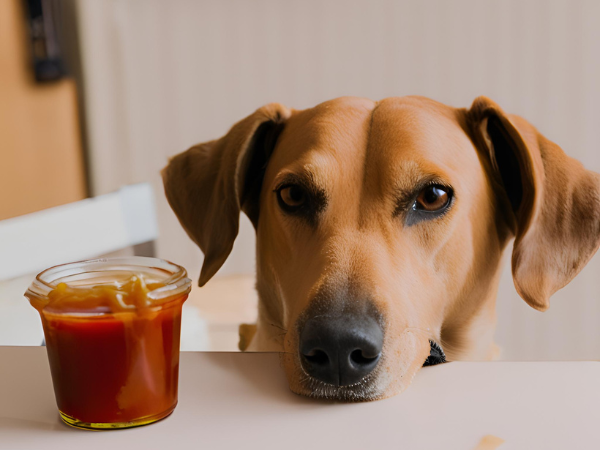
Effects Of Sweet And Sour Sauce On Dogs
Can dogs have sweet and sour sauce? Many dog owners might be tempted to share their meals with their furry friends, but it’s crucial to know the potential effects. This blog post delves into the effects of sweet and sour sauce on dogs to ensure their safety and well-being.
Digestive Issues
Sweet and sour sauce can cause digestive issues in dogs. The sauce often contains ingredients like sugar, vinegar, and spices, which can upset a dog’s stomach. Here are some common digestive problems dogs might face:
- Diarrhea: The high sugar content can lead to loose stools.
- Vomiting: Spices and vinegar can irritate the stomach lining, causing vomiting.
- Bloating: Some ingredients can lead to gas and discomfort.
It’s essential to monitor your dog if they accidentally consume sweet and sour sauce. The table below summarizes the typical symptoms and their severity:
| Symptom | Severity | Action |
|---|---|---|
| Diarrhea | Mild to Moderate | Provide water; monitor for 24 hours |
| Vomiting | Moderate | Offer bland food; consult vet if it persists |
| Bloating | Mild | Ensure rest; seek vet advice if severe |
Toxicity Risks
Sweet and sour sauce contains ingredients that pose toxicity risks to dogs. Some of these ingredients include:
- Garlic and Onions: Both are toxic to dogs and can cause damage to red blood cells.
- Xylitol: This artificial sweetener is highly toxic and can lead to rapid insulin release.
- Preservatives: Chemicals used to preserve the sauce can harm a dog’s liver and kidneys.
Understanding the signs of toxicity is crucial. Look for symptoms like:
- Weakness and lethargy
- Pale gums
- Increased heart rate
- Seizures
If you notice any of these symptoms, contact your veterinarian immediately. The table below highlights common toxic ingredients and their effects:
| Ingredient | Effect | Immediate Action |
|---|---|---|
| Garlic/Onions | Red blood cell damage | Induce vomiting; seek vet care |
| Xylitol | Hypoglycemia | Immediate vet visit |
| Preservatives | Liver/Kidney damage | Vet consultation |
Signs Of Sweet And Sour Sauce Poisoning
Dogs are curious creatures and often get into foods they shouldn’t. Sweet and sour sauce, while delicious to humans, can be harmful to our furry friends. Understanding the signs of sweet and sour sauce poisoning is crucial to ensure your dog stays healthy and happy.
Symptoms To Watch For
Recognizing the symptoms of sweet and sour sauce poisoning in dogs can help in taking timely action. Here are some common signs:
- Vomiting: One of the first signs. Your dog might vomit repeatedly after ingesting the sauce.
- Diarrhea: Loose or watery stools are another clear indicator.
- Lethargy: Your dog may seem unusually tired or weak.
- Drooling: Excessive drooling can indicate nausea or discomfort.
- Abdominal Pain: Your dog might show signs of pain when you touch their belly.
- Loss of Appetite: Refusal to eat can be a symptom of poisoning.
In severe cases, you might observe:
- Seizures: Indicating severe toxicity.
- Difficulty Breathing: Labored breathing can be a sign of a serious reaction.
- Unconsciousness: A very severe symptom requiring immediate attention.
| Symptom | Severity |
|---|---|
| Vomiting | Moderate |
| Diarrhea | Moderate |
| Lethargy | Mild to Severe |
| Seizures | Severe |
| Difficulty Breathing | Severe |
Immediate Actions
If you suspect your dog has ingested sweet and sour sauce, take these immediate actions:
- Remove Access: Ensure your dog can’t eat any more of the sauce.
- Check for Symptoms: Observe your dog closely for any signs mentioned above.
- Contact Your Vet: Call your veterinarian and describe the situation in detail.
- Provide Fresh Water: Offer your dog plenty of water to help flush out toxins.
- Follow Vet Instructions: Your vet may suggest bringing your dog in or providing first aid at home.
In some cases, your vet might recommend inducing vomiting. This should only be done under professional guidance. If your dog shows severe symptoms like seizures or difficulty breathing, take them to an emergency vet immediately.
Keep a close eye on your dog over the next few hours. Record any changes in behavior or new symptoms to inform your vet.
Frequently Asked Questions
Can Dogs Eat Sweet And Sour Sauce?
No, dogs should not eat sweet and sour sauce. It contains sugar, vinegar, and potentially harmful ingredients like garlic and onions.
Is Sweet And Sour Sauce Toxic For Dogs?
Yes, sweet and sour sauce can be toxic for dogs. Ingredients like garlic and onions are harmful to dogs.
What Happens If A Dog Eats Sweet And Sour Sauce?
If a dog eats sweet and sour sauce, it may experience stomach upset, diarrhea, or more severe health issues.
Are There Safe Alternatives To Sweet And Sour Sauce For Dogs?
Yes, there are safe alternatives like plain, cooked vegetables or dog-friendly sauces made specifically for pets.
Conclusion
Feeding dogs sweet and sour sauce is not advisable due to harmful ingredients. Always prioritize your dog’s health by choosing safe, nutritious foods. Consult your vet for dietary advice and treat recommendations. Keeping your pet’s diet simple and wholesome ensures their well-being and happiness.

